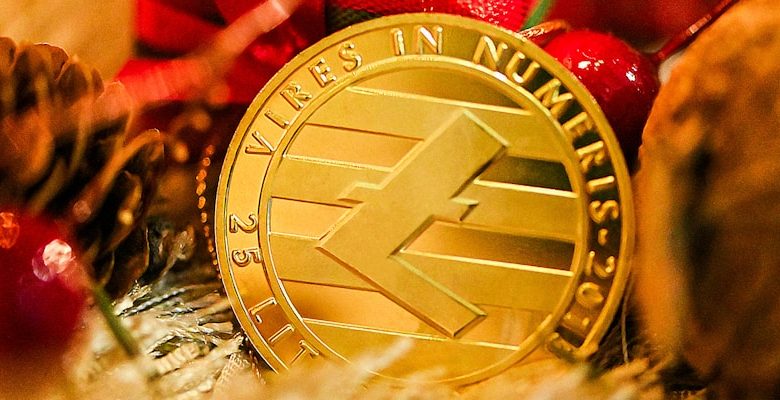The Role of Oracles in Blockchain Networks

- The importance of oracles in blockchain networks
- How oracles enhance the functionality of blockchain networks
- Types of oracles used in blockchain technology
- The role of oracles in ensuring data accuracy on blockchain networks
- Challenges and solutions for implementing oracles in blockchain networks
- The future of oracles in the evolution of blockchain technology
The importance of oracles in blockchain networks
Oracles play a critical role in blockchain networks by acting as trusted sources of external data that can be verified and integrated into smart contracts. This is essential for blockchain applications that require real-world data to trigger events or make decisions automatically. Oracles help bridge the gap between the blockchain and external systems, enabling decentralized applications to interact with the outside world in a secure and reliable manner.
Without oracles, blockchain networks would be limited to processing only the data that exists within the network itself, severely restricting their potential use cases. By providing a means for blockchain applications to access external data, oracles unlock a wide range of possibilities for industries such as finance, insurance, supply chain management, and more. This enables blockchain networks to be used for tasks that require up-to-date information from the real world.
The importance of oracles in blockchain networks lies in their ability to enhance the functionality and utility of decentralized applications. By enabling smart contracts to interact with external data sources, oracles make it possible to create more sophisticated and versatile blockchain-based solutions. This not only expands the scope of what blockchain networks can achieve but also increases their relevance and adoption in various industries.
In conclusion, oracles are a crucial component of blockchain networks that enable decentralized applications to access and utilize external data. Their role in providing trusted information from the outside world is essential for the automation and efficiency of smart contracts, unlocking new possibilities for blockchain technology. As the demand for decentralized solutions continues to grow, the importance of oracles in blockchain networks will only increase, driving further innovation and adoption in the industry.
How oracles enhance the functionality of blockchain networks
Oracles play a crucial role in enhancing the functionality of blockchain networks by bridging the gap between smart contracts and real-world data. By providing external data to blockchain networks, oracles enable smart contracts to execute based on real-time information, such as weather conditions, stock prices, or sports scores.
One key way in which oracles enhance blockchain networks is by enabling decentralized applications (dApps) to interact with off-chain data. This allows dApps to access a wide range of information that is not stored on the blockchain, expanding their use cases and utility.
Moreover, oracles help ensure the security and reliability of blockchain networks by verifying the accuracy of the data they provide. Through various consensus mechanisms and reputation systems, oracles can prevent the manipulation or falsification of data, thus maintaining the integrity of smart contract executions.
Overall, oracles play a critical role in unlocking the full potential of blockchain networks by enabling them to interact with external data sources in a secure and reliable manner. As the adoption of blockchain technology continues to grow, the importance of oracles in enhancing the functionality of blockchain networks is becoming increasingly evident.
Types of oracles used in blockchain technology
There are several types of oracles that are commonly used in blockchain technology to provide external data to smart contracts. These oracles play a crucial role in enabling blockchain networks to interact with the real world. Some of the most common types of oracles include:
- Data oracles: These oracles are responsible for fetching and verifying data from external sources, such as APIs, websites, or IoT devices. They ensure the accuracy and reliability of the data before passing it on to the smart contracts.
- Hardware oracles: Hardware oracles are used to provide information from physical devices, such as sensors or RFID tags, to the blockchain network. They help in bridging the gap between the digital and physical worlds.
- Software oracles: Software oracles are designed to retrieve data from software systems, databases, or other digital sources. They are commonly used in supply chain management, identity verification, and other applications where digital information is required.
- Consensus oracles: Consensus oracles use a decentralized network of nodes to reach an agreement on the validity of external data. They help in preventing single points of failure and ensuring the security and reliability of the information.
Each type of oracle has its own strengths and weaknesses, and the choice of oracle depends on the specific requirements of the blockchain application. By leveraging the right type of oracle, developers can enhance the functionality and usability of their smart contracts, making blockchain technology more versatile and adaptable to real-world use cases.
The role of oracles in ensuring data accuracy on blockchain networks
Oracles play a crucial role in ensuring the accuracy of data on blockchain networks. These third-party services act as bridges between the blockchain and external sources of information. By providing real-world data to smart contracts, oracles enable blockchain networks to access and verify information that is not natively available on the chain.
Oracles help in verifying transactions, triggering smart contracts, and executing various functions based on external data inputs. Without oracles, blockchain networks would be limited to processing only on-chain data, which could result in a lack of real-time information and potential inaccuracies.
The accuracy of data on blockchain networks is essential for maintaining the integrity and reliability of transactions. Oracles help in ensuring that the information used by smart contracts is valid and up-to-date. By connecting blockchain networks to external sources such as APIs, IoT devices, and other data feeds, oracles enable the seamless flow of information between the physical and digital worlds.
In conclusion, oracles play a critical role in enhancing the accuracy of data on blockchain networks. By facilitating the connection between blockchain networks and external sources of information, oracles help in verifying transactions and ensuring the integrity of smart contracts. Their role in bridging the gap between on-chain and off-chain data is essential for the overall efficiency and reliability of blockchain networks.
Challenges and solutions for implementing oracles in blockchain networks
Implementing oracles in blockchain networks presents several challenges that need to be addressed for successful integration. One major challenge is the issue of trust and security. Oracles act as intermediaries between off-chain data sources and the blockchain, opening the door to potential security vulnerabilities and manipulation. To mitigate this risk, robust security measures such as encryption and data validation protocols must be put in place.
Another challenge is the problem of scalability. As blockchain networks grow in size and complexity, the demands on oracles to provide real-time, accurate data increase significantly. This can lead to delays in data retrieval and processing, impacting the overall efficiency of the blockchain network. Solutions such as sharding and off-chain data storage can help alleviate these scalability issues.
Furthermore, the issue of data accuracy and reliability is a critical concern when implementing oracles. Inaccurate or tampered data can have far-reaching consequences on smart contracts and decentralized applications running on the blockchain. To ensure data integrity, mechanisms such as data validation algorithms and reputation systems can be implemented to verify the authenticity of the data provided by oracles.
The future of oracles in the evolution of blockchain technology
The future of oracles in the evolution of blockchain technology is promising. As blockchain networks continue to grow and expand, the need for reliable sources of off-chain data will become even more critical. Oracles play a crucial role in bridging the gap between the blockchain world and the real world, enabling smart contracts to access external information and execute actions based on that data.
One of the key challenges facing oracles is ensuring the accuracy and reliability of the data they provide. As blockchain technology evolves, oracles will need to adapt to new use cases and data sources to meet the growing demands of decentralized applications. This will require the development of more sophisticated oracle solutions that can securely and efficiently retrieve, verify, and deliver data to smart contracts in real-time.
Moreover, the future of oracles will likely see increased collaboration and integration with other blockchain technologies, such as decentralized finance (DeFi) protocols and non-fungible token (NFT) marketplaces. By working together, these technologies can create a more interconnected and seamless ecosystem that enables a wide range of innovative applications and services to flourish.
In conclusion, oracles are set to play a crucial role in the continued evolution of blockchain technology. As the demand for decentralized applications and smart contracts grows, the need for reliable sources of off-chain data will only increase. By addressing the challenges and opportunities that lie ahead, oracles can help unlock the full potential of blockchain technology and drive the next wave of innovation in the decentralized economy.



